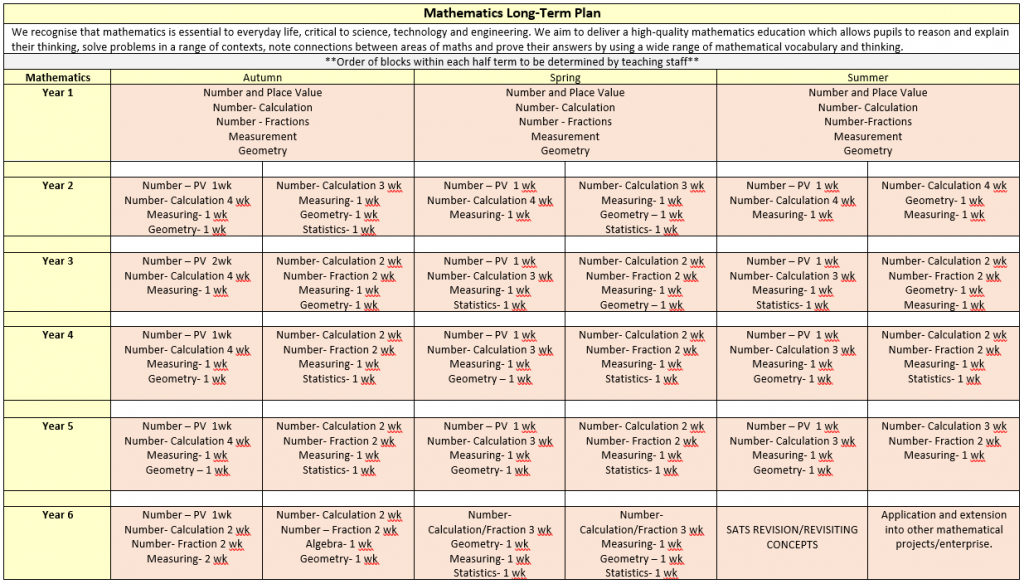Intent
At Brambles, we recognise that mathematics is essential to everyday life, critical to science, technology
and engineering, and necessary for financial literacy and most forms of employment. A high-quality
mathematics education therefore provides a foundation for understanding the world, the ability to
reason mathematically, and a sense of enjoyment and curiosity about the subject.
Learning maths and the language of mathematics is a little like learning a foreign language. All the
pieces need to connect and fit together for something to make sense as a whole. As children become
fluent in the language of mathematics and become increasingly able to reason and explain their
thinking mathematically they become increasingly able to solve problems in a range of contexts,
noting connections between areas of maths and proving their answers by using a wide range of
mathematical thinking.
Implementation
To create a lively, exciting and stimulating environment in which the children can learn
maths,
To promote the concept that acquiring maths knowledge and skills provides the foundation
for understanding the world around the children,
To develop mental strategies through the implementation of Schofield and Sims,
To encourage children to use mathematical vocabulary to reason and explain,
To allow time for partner talk in order to stimulate and develop a curiosity for maths,
To challenge children to stretch themselves and take risks in their learning,
To create a sense of awe and wonder surrounding maths,
To ensure children in Key Stage 1 are secure in their understanding of number and number
relationships and
To deliver maths in line with new National Curriculum guidelines.
In the Foundation Stage
Mathematics involves providing children with opportunities to develop and improve their skills in
counting, understanding and using numbers up to 10, calculating simple addition and subtraction
problems; and to describe shape, spaces and measures.
When planning to support mathematics, leaders, managers and practitioners need to reflect on the
ways in which children learn and ensure both provision and practice are informed by this. The
revised framework emphasises the three characteristics of effective teaching and learning first
identified in the principles into practice cards 4.1- 4.3 of the Statutory Framework (2008):
● playing and exploring – children investigate and experience things, and ‘have a go’
● active learning – children concentrate and keep on trying if they encounter difficulties, and enjoy
achievements
● creating and thinking critically – children have and develop their own ideas, make links between
ideas, and develop strategies for doing things.
At Key Stage 1
The principal focus of mathematics teaching in Key Stage 1 is to ensure that pupils develop
confidence and mental fluency with whole numbers, counting and place value. This should involve
working with numerals, words and the four operations, including with practical resources (e.g.
concrete objects and measuring tools).
At this stage, pupils should develop their ability to recognise, describe, draw, compare and sort
different shapes and use the related vocabulary. Teaching should also involve using a range of
measures to describe and compare different quantities such as length, mass, capacity/volume, time
and money.
By the end of Year 2, pupils should know the number bonds to 20 and be precise in using and
understanding place value. An emphasis on practice at this early stage will aid fluency. Pupils should
read and spell mathematical vocabulary, at a level consistent with their increasing word reading and
spelling knowledge at Key Stage 1.
In Lower Key Stage 2
The principal focus of mathematics teaching in lower Key Stage 2 is to ensure that pupils become
increasingly fluent with whole numbers and the four operations, including number facts and the
concept of place value. This should ensure that pupils develop efficient written and mental methods
and perform calculations accurately with increasingly large whole numbers.
At this stage, pupils should develop their ability to solve a range of problems, including with simple
fractions and decimal place value. Teaching should also ensure that pupils draw with increasing
accuracy and develop mathematical reasoning so they can analyse shapes and their properties, and
confidently describe the relationships between them. It should ensure that they can use measuring
instruments with accuracy and make connections between measure and number.
By the end of Year 4, pupils should have memorised their multiplication tables up to and including
the 12 multiplication table and show precision and fluency in their work. Pupils should read and spell
mathematical vocabulary correctly and confidently, using their growing word reading knowledge and
their knowledge of spelling
In Upper Key Stage 2
The principal focus of mathematics teaching in upper Key Stage 2 is to ensure that pupils extend
their understanding of the number system and place value to include larger integers. This should
develop the connections that pupils make between multiplication and division with fractions,
decimals, percentages and ratio.
At this stage, pupils should develop their ability to solve a wider range of problems, including
increasingly complex properties of numbers and arithmetic, and problems demanding efficient written and mental methods of calculation. With this foundation in arithmetic, pupils are introduced
to the language of algebra as a means for solving a variety of problems. Teaching in geometry and
measures should consolidate and extend knowledge developed in number. Teaching should also
ensure that pupils classify shapes with increasingly complex geometric properties and that they learn
the vocabulary they need to describe them.
By the end of Year 6, pupils should be fluent in written methods for all four operations, including
long multiplication and division, and in working with fractions, decimals and percentages. Pupils
should read, spell and pronounce mathematical vocabulary correctly.
